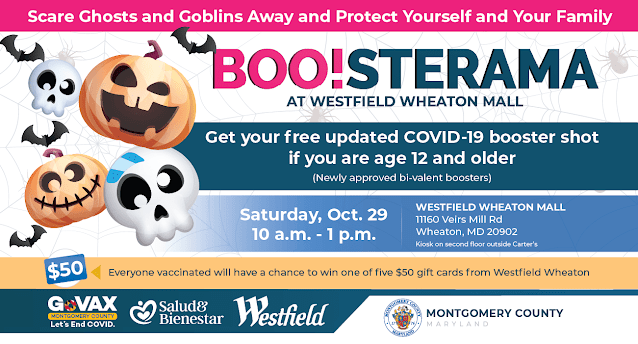Per the State of Maryland: The Maryland Department of Health (MDH) today launched a new webpage with resources about respiratory virus infections spreading rapidly this fall and steps Marylanders can take to protect themselves. The move follows Governor Hogan’s announcement about statewide preparedness efforts to address an increase in Respiratory Syncytial Virus (RSV) and potential COVID-19 and flu surges.
The state has seen an early surge of severe respiratory illness, especially in very young and school-age children. Many children with RSV or other respiratory illnesses will experience cold-like symptoms, such as runny nose, decrease in appetite, coughing, sneezing, and fever, that get better within a week or two. However, infants, people who are immunocompromised, and people living with certain chronic medical conditions may experience severe illness that can cause difficulty breathing and hospitalization. Contact your healthcare provider if you or your child is having difficulty breathing, not drinking enough fluids, or experiencing worsening symptoms.
There is no specific treatment for RSV. The U.S. Centers for Disease Control and Prevention offer these steps to relieve symptoms:
-
Manage fever and pain with over-the-counter fever reducers and pain relievers, such as acetaminophen or ibuprofen. (Never give aspirin to children.)
-
Drink enough fluids. It is important for people with RSV infection to drink enough fluids to prevent dehydration (loss of body fluids).
-
Talk to your healthcare provider before giving your child non-prescription cold medicines. Some medicines contain ingredients that are not good for children.
“Most people who get a respiratory illness, including infants and other children, can be diagnosed and treated by a healthcare provider without a trip to the emergency room,” said MDH Deputy Secretary of Public Health Services Dr. Jinlene Chan. “Discussing your or your child’s symptoms with your healthcare provider first may be a good way to receive medical care and avoid an unnecessary trip to the emergency room.” MDH encourages Marylanders to take preventive steps to be COVIDReady and reduce their risk of getting COVID, the flu and other respiratory illnesses.
To reduce the risk of spreading a respiratory virus, Marylanders are urged to:
-
Wash hands often with soap and water for at least 20 seconds.
-
Cover coughs and sneezes using a tissue or your upper sleeve, not your hands.
-
Stay home if you or your child is sick, except to get medical care.
-
Don’t send a sick child to school or child care.
-
Consider wearing a mask, especially if you develop any symptoms, such as a runny nose, cough, or fever.
-
Get a COVID-19 booster and flu shot. Find a vaccination clinic.
Children under the age of 5 are especially vulnerable to developing serious complications from the flu, while older children can spread flu to their higher-risk family members. For this reason, the Maryland Department of Health recommends that all children over 6 months of age receive the influenza vaccine in early fall every year.
The new bivalent COVID-19 booster is now available and safe for all Maryland children, ages 5 and over who have completed their primary series or most recent booster at least two months ago; it offers protection against the original COVID-19 strain and the Omicron variant. It is safe and effective to receive the influenza vaccine and the COVID-19 vaccine on the same day. To find an influenza or a COVID-19 vaccine:
To find a vaccination site, visit covidVAX.maryland.gov or call 1-855-MD-GOVAX (855-634-6829).
For more information about COVID-19 in Maryland visit covidLINK.maryland.gov.
For information on flu vaccines for children visit CDC.gov.
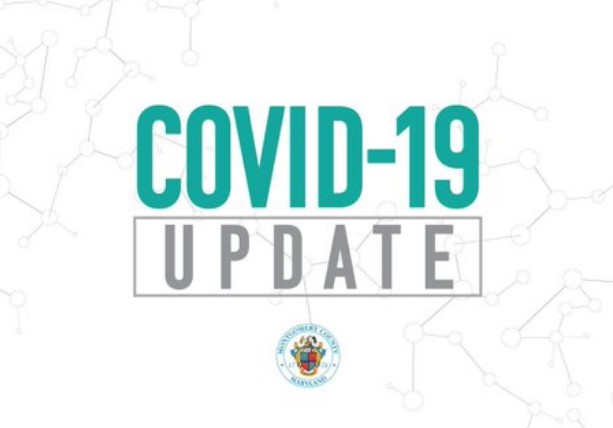
Per Montgomery County: Montgomery County health officials, in partnership with the A. James Clark School of Engineering at the University of Maryland-College Park (UMD), recently launched wastewater surveillance to detect COVID-19 circulating in the community. Wastewater surveillance provides an accurate way to detect illness-causing viruses and bacteria, such as SARS-CoV-2. Water samples will be collected bi-weekly at five sites in the County and sent to UMD for analysis. Data and results will be posted on the County’s COVID-19 website and the information will be updated weekly.
“Wastewater surveillance will be a game changer for our efforts to better predict outbreaks and prevent them from happening,” said County Executive Marc Elrich. “The partnership between our Department of Health and Human Services, the Maryland Department of Health, the University of Maryland and the Washington Suburban Sanitary Commission is an important tool to help us protect the health of our residents. With winter around the corner, we want to be prepared if there is another surge in COVID-19 cases and this surveillance system helps us do that.”
According to the Centers for Disease Control and Prevention (CDC), people infected with SARS-CoV-2 can shed the virus in their feces, even if they do not have symptoms. The virus can then be detected in wastewater, enabling wastewater surveillance to capture the presence of SARS-CoV-2 shed by people with and without symptoms. This means wastewater surveillance can serve as an early warning that COVID-19 is spreading in a community.
Unlike clinical testing where only a subgroup of individuals is tested, wastewater surveillance is non-invasive and all residents in a community contributing to a sewage collection system can be tested at once. It can be implemented throughout communities in Montgomery County as most of them are served by municipal wastewater collection systems. Rapid self-testing is increasingly popular, but many of the results are not reported, leaving health officials with only a partial overview of community infection.
Wastewater surveillance provides supplemental data, when used along with other surveillance data and serves as an early detection/ warning for increasing level of community transmission and surge of COVID-19 and other infections/emerging diseases. More info and data can be found on the County’s COVID-19 website.
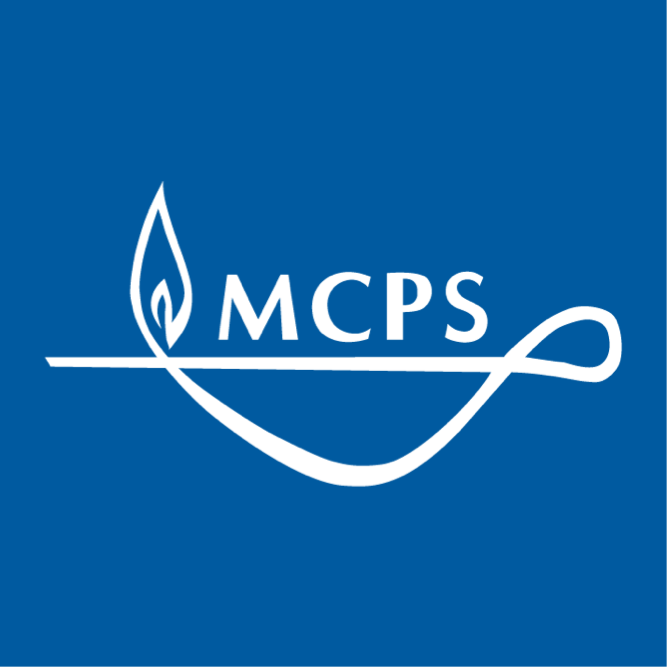
Per Montgomery County Public Schools:
“Dear MCPS Community,
As we head into November and the cooler weather, I would like to share information about health and safety for Halloween and this year’s cold and flu season:
Influenza, RSV and other respiratory infections
We are paying close attention to the surge of respiratory illness including influenza (flu) cases in our metropolitan region. This week, the Virginia Department of Healthurged residents to prepare for increased respiratory illnesses after a large flu outbreak in a high school attracted national attention. Respiratory Syncytial Virus (RSV) is another surging infection, with increased numbers straining the capacity of pediatric hospitals. Both influenza and RSV are viruses that cause mild respiratory symptoms in most people, but can be dangerous for very young children, older adults or those with certain medical conditions.
Practicing basic health hygiene practices to avoid the spread of germs, like staying home when sick, covering coughs and sneezes, and good hand-washing, is more important than ever. They help prevent flu, RSV and other respiratory illnesses, in addition to COVID-19. The flu vaccine reduces the risk of getting the flu and having severe symptoms from a flu infection. It is free for anyone older than 6 months, and is especially important for people at increased risk for flu complications.
Currently, there is no vaccine available for RSV. A preventive medication is available for certain infants and children at risk for severe disease (infants born very prematurely, or with congenital heart or lung disease). People at increased risk from RSV infections and their household members should be especially vigilant about preventing respiratory infections, and seek the advice of a health care professional if they develop respiratory symptoms. We will continue to monitor these health trends and keep our community informed.
Additional resources from the American Academy of Pediatrics:
RSV: When It’s More than Just a Cold
The Flu – What Parents Need to Know
Halloween Safety
Halloween can be a great time to be outside and spend time with friends and neighbors. However, it is also a high-risk time for injuries. Even if you are not participating in Halloween activities, you can take action to keep our neighborhoods safe:
- Drive slowly and carefully in neighborhoods where families are trick-or-treating. Be mindful of pedestrians crossing streets, walking along roadways or across driveway entrances. Children in darker costumes may be harder to see in low light. Costumes may restrict peripheral vision and make it difficult for pedestrians to see oncoming cars or other road risks.
- Review pedestrian safety with children. Supervise younger children when trick-or-treating and pre-plan safe routes with older children. Safer routes include sidewalks and well-lit areas. Reflective tape on costumes and glow-in-the-dark accessories make it easier for motorists to see pedestrians.
- Practice food safety. While concerns about foreign objects or poisons in candy are often highlighted in the media, this happens very rarely and families must also be aware of more common problems from food allergies or choking. Having a snack at home before trick-or-treating can reduce the urge to dip into the treat bag before adults have time to check children’s treats. The safest treats to distribute or accept are commercially wrapped with no signs of possible tampering, with clear allergen information. Parents of young children should check for small toys or candy that may present a choking hazard. Children with significant food allergies should have access to their emergency medication.
- Take precautions to prevent common Halloween injuries. Falls and trips related to costume features, fire-related injuries and personal injuries are common during Halloween. See these additional resources for specific advice: Halloween safety tips from SafeKids.org, the National Fire Prevention Association, the Allergy and Asthma Networkand the Food and Drug Administration. A national group of hand surgeon experts offers these tips for safe pumpkin carving.
MCPS continues to monitor health trends with our public health partners and collaborate on health promotion for the community. Thank you for your dedication to the health and safety of our students and staff.
Sincerely,
Patricia Kapunan, M.D., M.P.H.
MCPS Medical Officer”
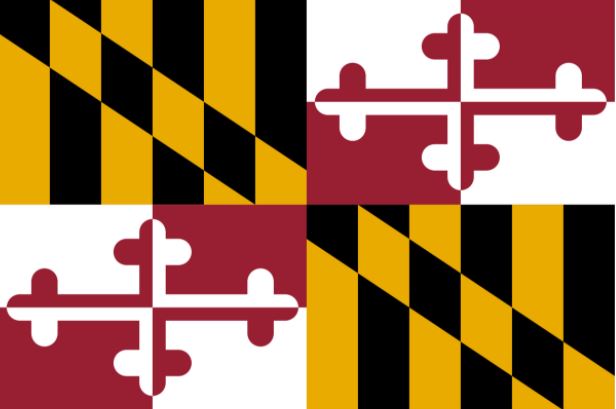
Per the State of Maryland:
Directs Hospitals to Utilize Recent $25 Million in State Funding to Prioritize Pediatric ICU Staffing
Expands Critical Care Coordination Center to Include Pediatric Surge Operations
State Surpasses 700,000 COVID-19 Bivalent Boosters Administered
Launching New Statewide COVID/Flu PSA Campaign Next Week
ANNAPOLIS, MD—As hospitals in the region and across the country experience an increase in Respiratory Syncytial Virus (RSV) admissions, Governor Larry Hogan today announced a series of new mitigation actions, along with preparedness efforts for potential fall and winter COVID-19 and flu surges in Maryland. “After meeting with our multi-agency public health task force yesterday and reviewing all of the data, I am announcing these steps to give our hospitals more tools to expand bed capacity for pediatric patients,” said Governor Hogan. “We also continue to encourage Marylanders to be COVIDReady, so that we remain one of the most vaccinated and boosted states, and stay ahead of the virus.”
Hospitals Directed to Utilize Additional State Funding to Prioritize Pediatric ICU Staffing. RSV hospitalizations are increasing earlier and more rapidly than in previous years, with the 0-2 age group comprising 57% of hospitalizations. On October 14, the Maryland Department of Health announced $80 million in additional funding for healthcare providers across the state. Hospitals will receive $25 million and have been directed in award letters issued today to utilize these resources to increase the hiring and recruitment of staff. For facilities with pediatric ICU and/or inpatient beds, awards should prioritize staffing those units appropriately before considering other non-pediatric units. All hospitals are also strongly urged to collaborate with neighboring hospitals on pediatric patient care coordination.
Critical Care Coordination Center Expanded to Include Pediatric Surge Operations. To help mitigate an increase in hospital admissions, particularly among children experiencing RSV, Rhinovirus, or Enterovirus D68, the Maryland Institute for Emergency Medical Services Systems (MIEMSS) will expand its Critical Care Coordination Center (C4) capability to include pediatric surge operations. This action will optimize existing capacity, increase statewide capacity of pediatric ICU beds, and facilitate the transfer of pediatric patients to available beds in Maryland hospitals and Children’s National Medical Center in Washington, DC.
State Continues Joint COVID-19/Flu Shot Campaign. Earlier this month, state officials further expanded COVIDReady Maryland, the state’s long-term preparedness plan, by adding the COVID-19 bivalent vaccine booster shot for residents five years old and older. In addition, adults now have the option of receiving a Novavax monovalent booster if they have not previously received a booster and if they cannot or will not receive mRNA vaccines.
To date, more than 710,000 Marylanders have received the COVID-19 bivalent booster, further protecting themselves against severe illness, hospitalization, and death. With flu hospitalizations also increasing earlier and faster than in previous years, state health officials continue to encourage Marylanders to get their COVID-19 and flu shots simultaneously. Starting next week, state health officials will launch a new “Flooster” television, radio, and social media ad campaign to amplify this message.
The state maintains a robust vaccination infrastructure of more than 900 providers. Some locations offer both COVID-19 and flu shots during the same visit. Find a vaccination clinic near you.
Enhanced Awareness and Outreach. The state’s GoVAX Call Center (1-855-MD-GOVAX) continues to be available seven days a week. In addition to providing a number of services for help with getting tested and boosted, the call center is launching a texting campaign focused on preventing COVID-19, flu, and RSV.
Per Montgomery County:
The County, in partnership with Por Nuestra Salud y Bienestar, Proyecto Salud and Westfield Wheaton, will host a “BOO!sterama” from 10 a.m.-1 p.m. on Saturday, Oct. 29, to provide the new bivalent COVID-19 boosters to anyone age 5 and older who had their last vaccination at least two months ago. The shots are free and no appointment is needed. The new Pfizer bivalent booster is approved for anyone 5 and older and the updated Moderna bivalent booster is approved for anyone 6 and older.
The event will be held at Westfield Wheaton Mall, outside of the Carter’s store on the second floor. Individuals who receive their booster at the event will be entered into a drawing to receive one of five $50 gift cards that can be used throughout Westfield Wheaton’s variety of retailers.
“Health officials continue to recommend the updated COVID-19 booster as a way of protecting people from the risk of serious illness from COVID-19,” said County Executive Marc Elrich. “I am grateful and appreciative of our partnership with Westfield Wheaton to provide space, incentives and access to get our vaccines directly in front of potential recipients.”
In addition to the BOO!sterama event, the new bivalent booster shots are widely available at locations throughout the community. Make an appointment for the new bivalent booster shot or find other locations at GoVaxMoco.com.
For more information about Por Nuestra Salud Y Bienestar, visit its website.
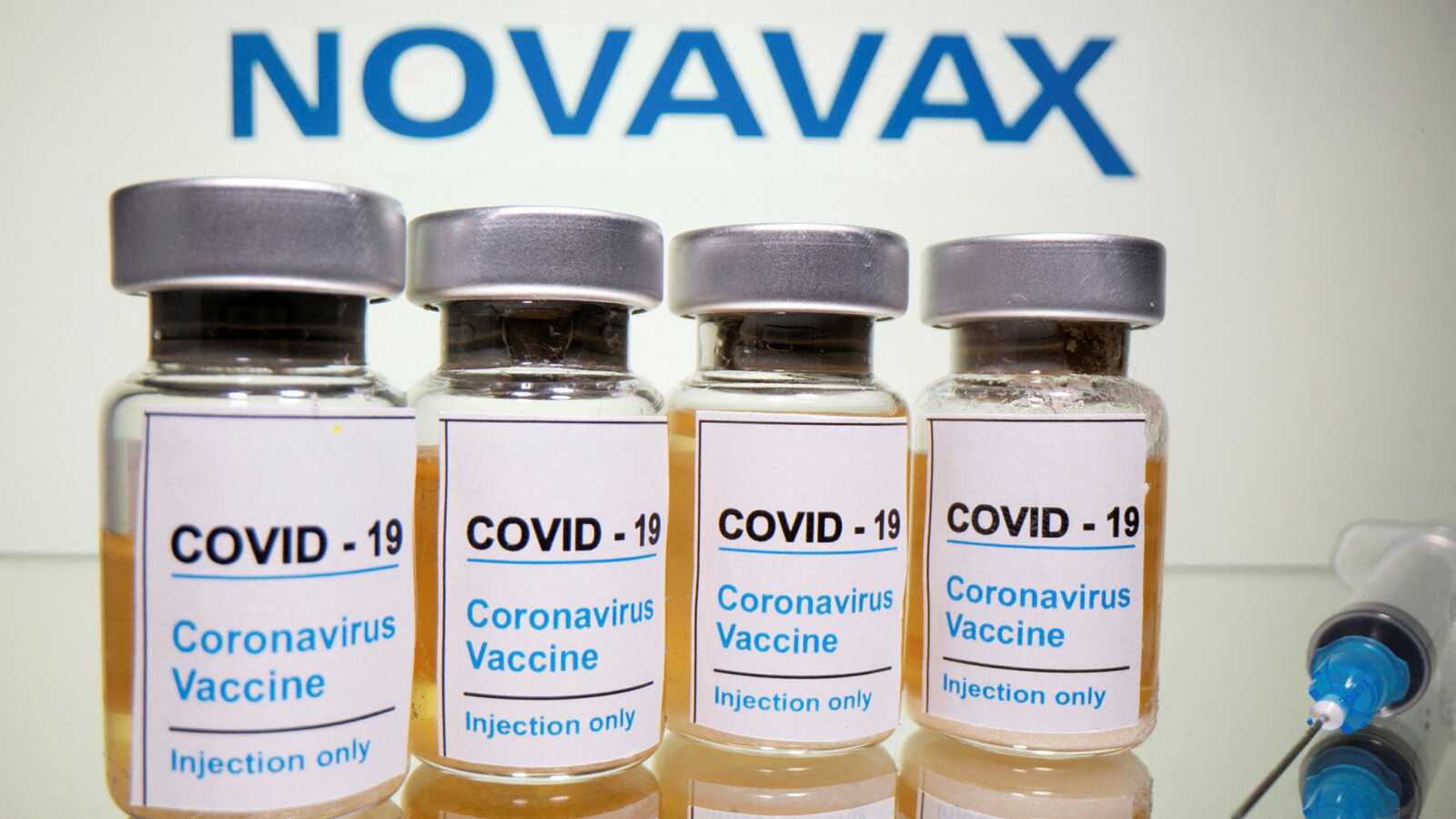
GAITHERSBURG, Md., Oct. 19, 2022 /PRNewswire/ — Novavax, Inc. (Nasdaq: NVAX), a biotechnology company dedicated to developing and commercializing next-generation vaccines for serious infectious diseases, today announced that the Novavax COVID-19 Vaccine, Adjuvanted (NVX-CoV2373) has received emergency use authorization (EUA) from the U.S. Food and Drug Administration (FDA) to provide a first booster dose at least six months after completion of primary vaccination with an authorized or approved COVID-19 vaccine to individuals 18 years of age and older for whom an FDA-authorized mRNA bivalent COVID-19 booster vaccine is not accessible or clinically appropriate, and to individuals 18 years of age and older who elect to receive the Novavax COVID-19 Vaccine, Adjuvanted because they would otherwise not receive a booster dose of a COVID-19 vaccine.
“The U.S. now has access to the Novavax COVID-19 Vaccine, Adjuvanted, the first protein-based option, as a booster,” said Stanley C. Erck, President and Chief Executive Officer, Novavax. “According to CDC data, almost 50 percent of adults who received their primary series have yet to receive their first booster dose. Offering another vaccine choice may help increase COVID-19 booster vaccination rates for these adults.”
The FDA EUA decision was based on data from the Phase 3 Prevent-19 clinical trial and from the U.K.-sponsored COV-BOOST trial. In the Phase 3 trial, a single booster dose of the Novavax COVID-19 Vaccine, Adjuvanted was administered to healthy adult participants aged 18 and older approximately eight or 11 months after their primary series. Following a booster dose, antibody levels increased significantly relative to pre-boost levels, rising above levels associated with protection in the Phase 3 trials. Neutralizing antibodies also increased by 34- to 27-fold compared to pre-boost levels when boosted at eight or 11 months. In the COV-BOOST trial, the Novavax COVID-19 Vaccine, Adjuvanted increased antibody titers when used as a third dose following initial dosing with another authorized COVID-19 vaccine (heterologous boosting).
In the trial, following the booster, local and systemic reactions had a median duration of approximately two days. The incidence of Grade 3 or higher events remained relatively low. Safety reporting of reactogenicity events showed an increasing incidence across all three doses of the Novavax COVID-19 Vaccine, Adjuvanted, often seen with increased immunogenicity. Among participants 18 years of age and older, solicited adverse reactions following administration of a booster dose of the Novavax COVID-19 Vaccine, Adjuvanted were injection site pain/tenderness (81.1%), fatigue/malaise (63.4%), muscle pain (63.0%), headache (52.9%), joint pain (30.3%), nausea/vomiting (14.7%), injection site swelling (8.4%), injection site redness (6.3%), and fever (6.3%).
The next step for the vaccine is a policy recommendation for use as a first booster from the Centers for Disease Control and Prevention (CDC). Doses of the Novavax COVID-19 Vaccine, Adjuvanted are available for use in the U.S. pending this final step and can be located on Vaccines.gov.
Novavax’ vaccine is also available for use as a booster in adults aged 18 and older in the European Union, Japan, Australia, New Zealand, Switzerland, and Israel. In addition, a number of countries have policy recommendations allowing use of the vaccine as a heterologous or homologous booster dose. In the U.S., the FDA granted EUA for a two-dose primary series in adults aged 18 and older in July and for adolescents aged 12 through 17 in August. Following these EUA’s, the CDC recommended the vaccine for use as a primary series for both age groups.
This project has been supported in part with federal funds from the Department of Health and Human Services (HHS); the Administration for Strategic Preparedness and Response; Biomedical Advanced Research and Development Authority (BARDA), through the Department of Defense Joint Program Executive Office for Chemical, Biological, Radiological and Nuclear Defense (JPEO-CBRND) under Contract Number W15QKN-16-9-1002, Project Number MCDC2011-001.
Use of the Novavax COVID-19 Vaccine, Adjuvanted in the U.S.
The Novavax COVID-19 Vaccine, Adjuvanted vaccine has not been approved or licensed by the US Food and Drug Administration (FDA), but has been authorized for emergency use by FDA, under an Emergency Use Authorization (EUA) to prevent Coronavirus Disease 2019 (COVID-19) as a primary series individuals 12 years of age and older. The Novavax COVID-19 Vaccine, Adjuvanted vaccine is also authorized to provide a first booster dose at least 6 months after completion of primary vaccination with an authorized or approved COVID-19 vaccine to individuals 18 years of age and older for whom an FDA-authorized mRNA bivalent COVID-19 booster vaccine is not accessible or clinically appropriate, and to individuals 18 years of age and older who elect to receive the Novavax COVID-19 Vaccine, Adjuvanted because they would otherwise not receive a booster dose of a COVID-19 vaccine.
The emergency use of this product is only authorized for the duration of the declaration that circumstances exist justifying the authorization of emergency use of the medical product under Section 564(b)(1) of the FD&C Act unless the declaration is terminated or authorization revoked sooner.
Authorized Use
The Novavax COVID-19 Vaccine, Adjuvanted is authorized for use under an Emergency Use Authorization (EUA) to provide a two-dose primary series for active immunization to prevent coronavirus disease 2019 (COVID-19) caused by severe acute respiratory syndrome coronavirus 2 (SARS-CoV-2) in individuals 12 years of age and older. The Novavax COVID-19 Vaccine, Adjuvanted vaccine is also authorized to provide a first booster dose at least 6 months after completion of primary vaccination with an authorized or approved COVID-19 vaccine to individuals 18 years of age and older for whom an FDA-authorized mRNA bivalent COVID-19 booster vaccine is not accessible or clinically appropriate, and to individuals 18 years of age and older who elect to receive the Novavax COVID-19 Vaccine, Adjuvanted because they would otherwise not receive a booster dose of a COVID-19 vaccine.
IMPORTANT SAFETY INFORMATION
Contraindications
Do not administer the Novavax COVID-19 Vaccine, Adjuvanted to individuals with a known history of a severe allergic reaction (e.g., anaphylaxis) to any component of the Novavax COVID-19 Vaccine, Adjuvanted.
Warnings and Precautions
Management of Acute Allergic Reactions: Appropriate medical treatment to manage immediate allergic reactions must be immediately available in the event an acute anaphylactic reaction occurs following administration of the Novavax COVID-19 Vaccine, Adjuvanted. Monitor the Novavax COVID-19 Vaccine, Adjuvanted recipients for the occurrence of immediate adverse reactions according to the Centers for Disease Control (CDC) and Prevention guidelines.
Myocarditis and Pericarditis: Clinical trials data provide evidence for increased risks of myocarditis and pericarditis following administration of the Novavax COVID-19 Vaccine, Adjuvanted (see Full EUA Prescribing Information). The CDC has published considerations related to myocarditis and pericarditis after vaccination, including for vaccination of individuals with a history of myocarditis or pericarditis (https://www.cdc.gov/vaccines/covid-19/clinical-considerations/interim-considerations-us.html#myocarditis-pericarditis).
Syncope (fainting): May occur in association with administration of injectable vaccines. Procedures should be in place to avoid injury from fainting.
Altered Immunocompetence: Immunocompromised persons, including individuals receiving immunosuppressant therapy, may have a diminished immune response to the Novavax COVID-19 Vaccine, Adjuvanted.
Limitations of Vaccine Effectiveness: The Novavax COVID-19 Vaccine, Adjuvanted may not protect all vaccine recipients.
Adverse Reactions
Adverse reactions reported in clinical trials following administration of the Novavax COVID-19 Vaccine, Adjuvanted include injection site pain/tenderness, fatigue/malaise, muscle pain, headache, joint pain, nausea/vomiting, injection site redness, injection site swelling, fever, chills, injection site pruritus, hypersensitivity reactions, lymphadenopathy-related reactions, myocarditis, and pericarditis.
Myocarditis, pericarditis, anaphylaxis, paresthesia, and hypoesthesia have been reported following administration of the Novavax COVID-19 Vaccine, Adjuvanted outside of clinical trials.
Additional adverse reactions, some of which may be serious, may become apparent with more widespread use of the Novavax COVID-19 Vaccine, Adjuvanted.
Reporting Adverse Events and Vaccine Administration Errors
The vaccination provider enrolled in the federal COVID-19 Vaccination Program is responsible for mandatory reporting of the following to the Vaccine Adverse Event Reporting System (VAERS):
- vaccine administration errors whether or not associated with an adverse event,
- serious adverse events (irrespective of attribution to vaccination),
- cases of myocarditis,
- cases of pericarditis,
- cases of Multisystem Inflammatory Syndrome (MIS), in adults and children, and
- cases of COVID-19 that results in hospitalization or death.
Complete and submit reports to VAERS online: For further assistance with reporting to VAERS, call 1-800-822-7967. The reports should include the words “Novavax COVID-19 Vaccine, Adjuvanted EUA” in the description section of the report.
To the extent feasible, report adverse events to Novavax, Inc. using the following contact information or by providing a copy of the VAERS form to Novavax, Inc. Website: www.NovavaxMedInfo.com, Fax Number: 1-888-988-8809, Telephone Number: 1-844-NOVAVAX (1-844-668-2829).
Please click to see the Novavax COVID-19 Vaccine, Adjuvanted Fact Sheet for Healthcare Providers Administering Vaccine (Vaccination Providers) and EUA Full Prescribing Information.
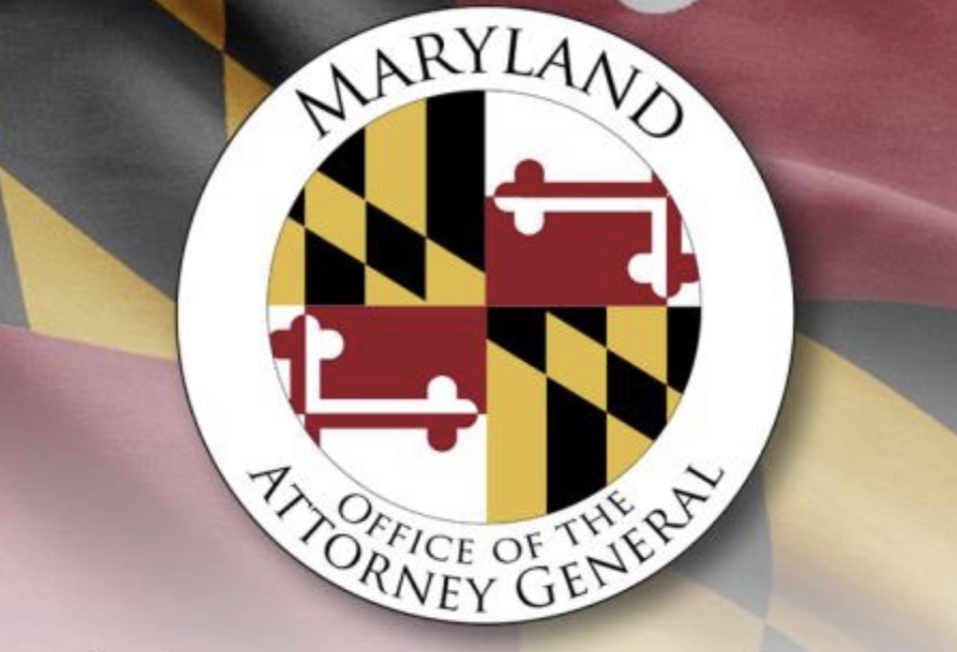
Per the Office of Maryland Attorney General Frosh:
Coalition Files Amicus Brief to Fight Healthcare Discrimination Against Transgender People
BALTIMORE, MD (October 12, 2022) – Maryland Attorney Brian E. Frosh has joined a coalition of 18 attorneys general standing up for transgender rights and equal access to healthcare in filing an amicus brief in Kadel v. Folwell, a case pending in the U.S. Court of Appeals for the Fourth Circuit. The brief supports a group of transgender individuals or parents of transgender individuals who have been denied coverage for gender-affirming care under the North Carolina State Health Plan for Teachers and State Employees.
“North Carolina’s exclusion of gender-affirming care under its state insurance plan is unconstitutional,” said Attorney General Frosh. “This denial of care is, plain and simple, just an attempt to disenfranchise transgender individuals.”
The brief argues that the Fourth Circuit should affirm a lower court ruling that determined that the North Carolina State Health Plan for Teachers and State Employees’ denial of medically necessary, gender- affirming care based on sex violates the Equal Protection Clause of the U.S. Constitution. The coalition argues that discrimination against transgender people violates the Equal Protection Clause because it constitutes discrimination based on sex.
The brief notes the efforts that states joining the filing have made to protect transgender healthcare rights, including prohibiting health care discrimination based on transgender identity and ensuring that state employee healthcare plans cover medically necessary gender-affirming care. These policies have categorically improved the well-being of transgender people, and reduced the risk of suicide, substance abuse, and depression without significantly increasing premium costs or expenses to insurers and plan sponsors.
Joining Attorney General Frosh in filing the brief are the attorneys general of California, Colorado, Delaware, the District of Columbia, Hawaii, Illinois, Maine, Massachusetts, Minnesota, Nevada, New Jersey, New Mexico, New York, Oregon, Rhode Island, Vermont, and Washington.
www.marylandattorneygeneral.gov

Per Montgomery County:
For Immediate Release: Monday, October 10, 2022
Montgomery County health officials urge anyone age 12 and older to get their COVID-19 booster. The County, in partnership with Por Nuestra Salud y Bienestar, Proyecto Salud and Westfield Wheaton, will host a “BOO!sterama” from 10 a.m. to 1 p.m. on Saturday, Oct. 29 to provide free COVID-19 boosters to shoppers. No appointment is needed.
Both Moderna and Pfizer bivalent boosters will be available at the BOO!sterama. Anyone 12 and older who had their last vaccine dose at least two months ago should get the updated booster shot. The event will be held at Westfield Wheaton Mall, outside of the Carter’s store on the second floor. Individuals who receive their booster at the event will be entered in a drawing to receive one of five $50 gift cards that can be used throughout Westfield Wheaton’s wide variety of retailers.
“Over the past month, Montgomery County became the largest jurisdiction to become 90% fully vaccinated,” said County Executive Marc Elrich. “However, being ‘fully vaccinated’ doesn’t protect us enough and we must convince every eligible individual to get the new bivalent booster. These booster shots are free and can protect you from the risk of serious illness from COVID-19. I am grateful and appreciative of our partnership with Westfield Wheaton to provide space, incentives and access to get our vaccines directly in front of potential recipients.”
To date, more than 15,000 doses of the new bivalent vaccine have been given at County-operated vaccination clinics. In addition to the BOO!sterama event, booster shots are widely available at locations throughout the community. Make an appointment for the new bivalent booster shot or find other locations at GoVaxMoco.com. For more information about Por Nuestra Salud Y Bienestar visit their website.
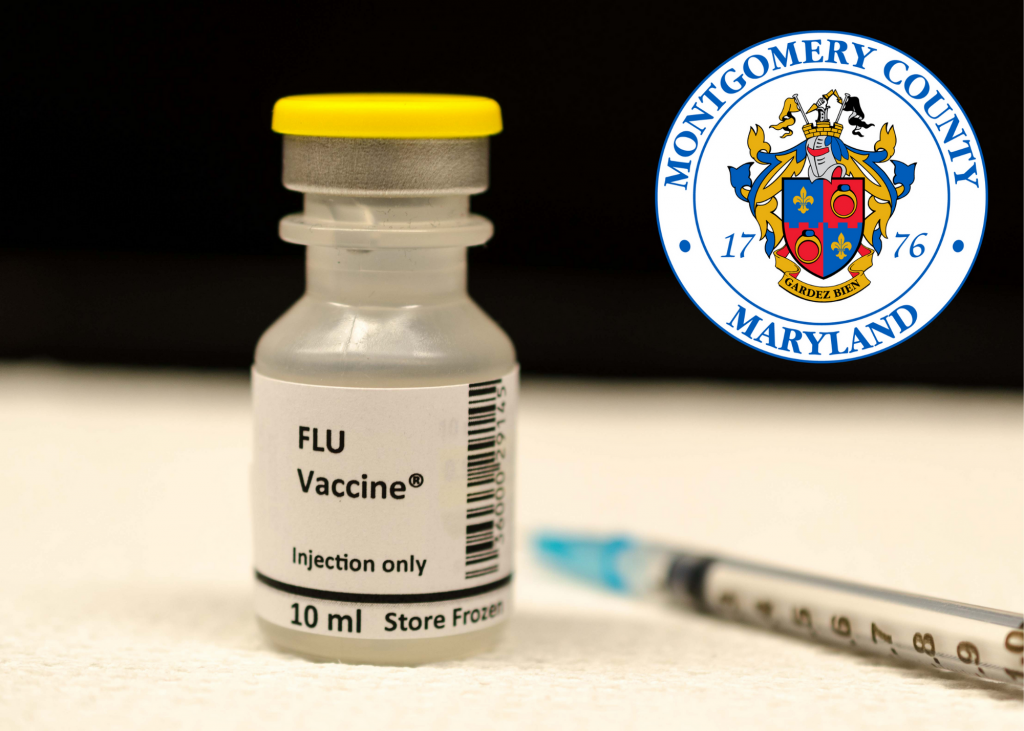
Per Montgomery County:
Montgomery County health officials are urging all residents to get a flu vaccination and the County will hold clinics for adults and children in October and November. Getting a flu vaccination does not protect against COVID-19, but flu shots have been shown to reduce the risk of flu illness, hospitalization, and death.
Seasonal flu vaccinations are available through private health providers, as well as at retail locations throughout the community. County-sponsored seasonal flu vaccination clinics will include clinics for adults and for children ages six months and older. The County will offer flu shots only. High-dose flu vaccine and FluMist will not be available.
Appointments are recommended but walk-ins are welcome.
Anyone not wanting to get the flu should receive the seasonal flu vaccination, particularly the elderly, household members living with children younger than six months of age, health care workers and individuals with chronic illnesses.
The schedule for County-operated clinics:
- Thursday, Oct. 13
3-7 p.m.
Universities at Shady Grove
9630 Gudelsky Drive, Building II
Rockville
Make an appointment for anyone six months of age and older
- Thursday, Oct. 20
3-7 p.m.
Universities at Shady Grove
9630 Gudelsky Drive, Building II
Rockville
Make an appointment for anyone six months of age and older
Paid visitor parking is available in the Traville Gateway Garage or Shady Grove Garage. See parking map for more information.
The clinics are a partnership between Montgomery County Health and Human Services and the University of Maryland System.
A flu clinic for anyone six months and older will be held:
- Thursday, Nov. 10
9 a.m.-3 p.m.
Dennis Avenue Health Center
2000 Dennis Avenue
Silver Spring
Make an appointment for a child 6 months to age 18
Make an appointment for anyone 19 years of age and older
School age children up to 18 years of age can also visit the weekly Immunization Clinic every Tuesday from 8:30 a.m. to 4 p.m. at the Dennis Avenue Health Center for flu vaccine.
The best way to prevent seasonal flu is to get vaccinated each year, but good health habits can often help stop the spread of germs and prevent illnesses like the flu. Good health habits include:
- Always cover cough or sneeze with a tissue—then throw the tissue away or cough or sneeze into the inside of the elbow.
- Wash hands often with soap and water, especially after you cough or sneeze and before you eat. Alcohol hand sanitizer (minimum 60 percent alcohol) will help if soap and water are not available.
- Avoid touching the eyes, nose, or mouth. These are places germs can enter the body easily.
- Avoid close contact with people who are sick. When you are sick, keep your distance from others to protect them from getting sick, too.
- Monitor yourself and your family for symptoms of fever which include chills, headache, sore throat, cough, body aches, and vomiting or diarrhea.
- If you are sick, stay home from work, school, or other public places until you are feeling well.
See the County’s flu website for more information.
Per the State of Maryland:
ANNAPOLIS, MD—Noting the benefits to health and well-being that come from walking—Maryland’s official state exercise—Governor Larry Hogan today issued a proclamation recognizing the third annual statewide celebration of Walktober, including a month-long schedule of events and webinars. The governor also noted that this Wednesday, Oct. 5, 2022, is annual Walk Maryland Day and encouraged residents to walk for health, recreation, and transportation.
“Walking is one of the most beneficial ways to support better physical and mental health, and fall is the perfect time to get outdoors and experience the beauty of our great state,” said Governor Hogan. “Research shows that people who take part in daily physical activity live longer and have a lower risk of heart disease, stroke, depression, and other health issues. Walking is an activity available to people of all ages and abilities, and I encourage Marylanders to take part in our annual Walktober celebration.”

On this year’s Walk Maryland Day, residents can become “sole mates” by joining one of many official walks that will take place across the state, or register a walk they plan to take by themselves or with others in their community. Registration is available at mdot.maryland.gov/walktober.
The Walktober webinar series is scheduled 10:30 a.m. to noon Thursdays, Oct. 6, 13, 20, and 27, and will feature experts discussing the health benefits of walking as well as ideas to promote walkable communities and expand pedestrian access, safety, and equity across the state. Details and registration are available here.
The Hogan administration supports pedestrian access and infrastructure initiatives, and works with the Maryland Bicycle and Pedestrian Advisory Committee and other partners to raise awareness of pedestrian safety and accessibility. Maryland has more than 1,200 miles of trails on state public lands.
Agencies participating in Walktober include the Maryland Department of Transportation (MDOT), the Maryland Department of Health, the Maryland Department of Natural Resources, the Maryland Department of Planning, the Maryland Department of Commerce, the Maryland State Department of Education, and the Maryland Office of Tourism, as well as local jurisdictions, agencies, nonprofits, and private sector partners.
“Walking is an essential component of Maryland’s transportation network, and connects many residents directly to mass transit, carpooling, jobs, education, and recreation,” said MDOT Secretary James F. Ports, Jr. “Walktober brings us together to enjoy walking, raise awareness, and share ideas of how we can enhance pedestrian safety and access.”
For more details on Walktober and Walk Maryland Day, follow on Twitter @MDOTNews and @WalkCycleMD.
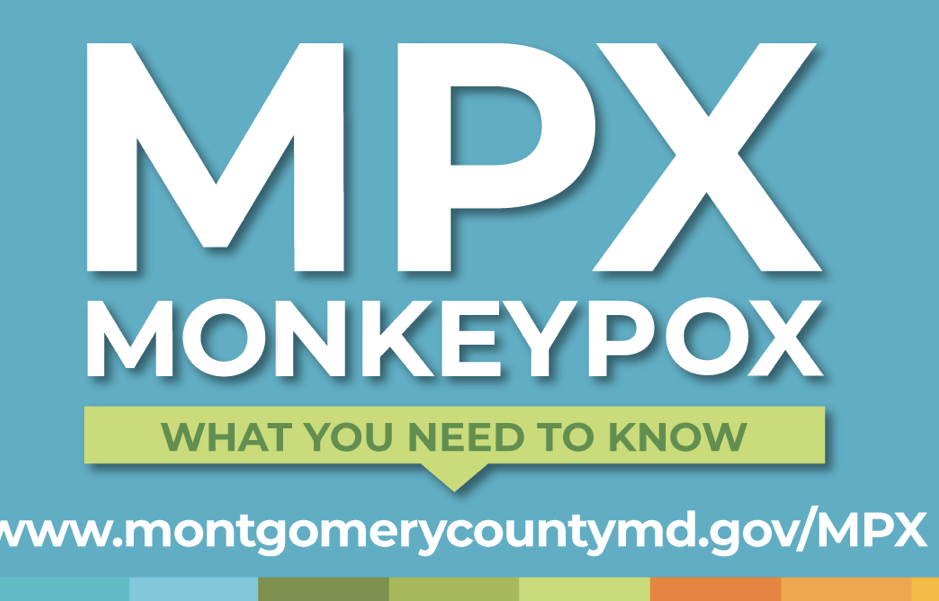
Per Montgomery County:
For Immediate Release: Tuesday, September 27, 2022
Montgomery County health officials, in partnership with the African American Health Program and the Office of Community Partnerships, will host a virtual monkeypox town hall meeting that will focus on how the disease is impacting the Black community at 6 p.m. on Monday, Oct. 10. It will be the third meeting in a series planned by the County to address the recent spread of monkeypox.
Panelists in the town hall will include James Bridgers, the acting County health officer; Ikenna Myers, program manager for clinical services for the African American Health Program’s; and Kimberly Townsend, senior administrator for Communicable Disease and Epidemiology with the County’s Department of Health and Human Services.
The panelists will update the current monkeypox situation in Montgomery County and Maryland, provide information on the County’s monkeypox vaccine program and answer questions about prevention and treatment.
The virtual town hall will be hosted on Zoom. It will be streamed live on the County’s Facebook page and also simulcast on County Cable Montgomery (CCM: Channel 6 and HD 996 on Comcast; Channel 6 and HD 1056 on RCN; and Channel 30 on Verizon).
Registration for the Zoom meeting is required. Questions can be submitted anonymously prior to the meeting. There will be an opportunity to ask questions virtually at the meeting.
Register for the meeting at https://bit.ly/3dRmkf5.
For more information, visit the County’s Monkeypox website or email [email protected].


